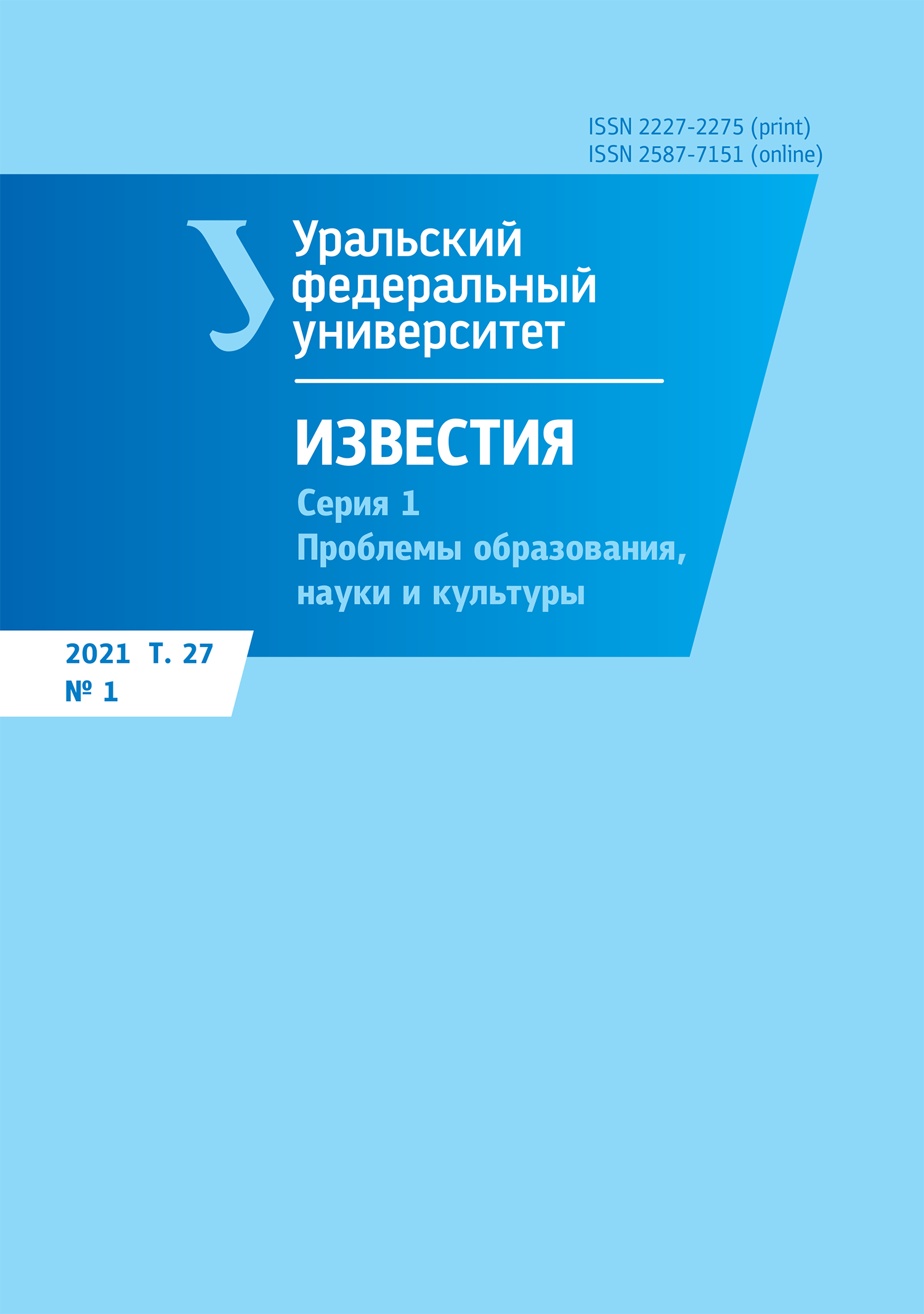Удовлетворенность студентов колледжей и вузов образованием: сравнительный анализ
Аннотация
Ключевые слова
Полный текст:
PDFЛитература
Заборова Е. Н., Глазкова И. Г., Маркова Т. Л. Дистанционное обучение: мнение студентов // Социол. исслед. 2017. № 2. С. 131–139.
Индикаторы образования : стат. сб. / Н. В. Бондаренко, Д. Р. Бородина, Л. М. Гохберг и др. М., 2020. 496 с.
Малошонок Н. Г., Семенова Т. Г., Терентьев Т. А. Учебная мотивация студентов российских вузов: возможности теоретического осмысления // Вопр. образования. 2015. № 3. С. 92–121.
Нефедова А. И. «Качество университетской жизни»: пример адаптации методики в российском университете // Высшее образование в России. 2016. № 4. С. 91–98.
Тихонова Н. Е. Факторы жизненного успеха и социального статуса в сознании россиян // Вестн. Ин-та социологии. 2018. № 27. С. 11–43.
Численность обучающихся, педагогического и профессорско-преподавательского персонала, число образовательных организаций Российской Федерации: (Прогноз до 2020 года и оценка тенденций до 2030 года) / Ф. Э. Шереги, А. Л. Арефьев, Г. А. Ключарев, И. О. Тюрина. М., 2015. 288 с.
Adler A. Positive education: educating for academic success and for a fulfilling life // Papeles del Psicologo. 2017. Vol. 38, № 1. P. 50–57.
Alves H., Raposo M. Conceptual model of student satisfaction in higher education // Total Quality Management & Business Excellence. 2007. Vol. 18, № 5. P. 571–588.
Duta A., Wielgoszewska B., Iannelli C. Different degrees of career success: social origin and graduates’ education and labour market trajectories // Advances in Life Course Research. 2021. Vol. 47. Paper no. 100376.
Fuzi B. Should we and can we motivate university students? The analysis of the interpreta-tion of the role and the teaching methods of university teachers // 7th Teaching and Education Conference. L., 2019. P. 36–57.
Kan Kilinc B., Yazici B., Gunsoy B., Gunsoy G. Perceptions and opinions of graduates about the effects of open and distance learning in Turkey // Turkish Online Journal of Distance Education. 2020. Vol. 21, № 1. P. 121–132.
Kim U., Park Y.S. Indigenous psychological analysis of academic achievement in Korea: The influence of self-efficacy, parents, and culture // International Journal of Psychology. 2006. Vol. 41, № 4. P. 287–292.
Licite L., Janmere L. Millennial student expectations towards higher education in Latvia // 16th International Scientific Conference: Engineering for Rural Development. 2017. P. 1440–1445.
OlmosGomez M. D., LuqueSuarez M., Ferrara C., CuevasRincon J. M. Quality in Higher Education and Satisfaction among Professors and Students // European Journal of Investigation in Health Psychology and Education. 2021. Vol. 11, № 1. P. 219–229.
Ordonez J. L., MendezUlrich J. L., Lopez A. M. Academic motivation and satisfaction among students of education: an international perspective // Educacion XXI. 2021. Vol. 24, № 1. P. 45–68.
Sahin I., Shelley M. Considering students’ perceptions: The distance education student sat-isfaction model // Educational Technology & Society. 2008. Vol. 11, № 3. P. 216–223.
Silva J. H. D., Mendes G. H. D., Ganga G. M. D. et al. Antecedents and consequents of stu-dent satisfaction in higher technical-vocational education: evidence from Brazil // International Journal for Educational and Vocational Guidance. 2020. Vol. 20, № 2. P. 351–373.
Skea С. Student satisfaction in higher education: settling up and settling down // Ethics and Education. 2017. Vol. 12, № 3. P. 364–377.
Temesgen M. H., Girma Y., Janakiraman B. Factors Influencing Student’s Satisfaction in the Physiotherapy Education Program // Advances in Medical Education and Practice. 2021. Vol. 12, P. 133–140.
Tuononen T., Parpala A., LindblomYlanne S. Graduates’ evaluations of usefulness of uni-versity education, and early career success — a longitudinal study of the transition to working life // Assessment & Evaluation in Higher Education. 2019. Vol. 44, № 4. P. 581–595.
DOI: https://doi.org/10.15826/izv1.2021.27.4.086
Ссылки
- На текущий момент ссылки отсутствуют.
